Rui Shi is a London- and China-based artist working across film, digital media, and installation, whose practice reimagines virtual environments as haunted, unstable terrains shaped by queerness, failure, and glitch. Informed by queer hauntology, game design, and glitch aeshetics, their work explores how digital spaces can resist fixed narratives and normative structures of time and identity.
Rui Shi’s moving-image works inhabit a space of unresolved memory and disoriented mobility by constructing environments where action is automatic and identity is suspended. Where the body moves but never quite arrives. Works such as Ghost Through the Looking Glass (2023) and Phantoms (2022) articulate a queer digital condition shaped by repetition, erasure, and spectral presence. For instance, in Ghost Through the Looking Glass, Shi deploys a hybrid landscape of filmed subtropical forests and Unreal Engine 5 simulations to explore the entanglement of queer identity, spatial orientation, and virtual mobility. The term “ghost” emerges from both spiritual and Derridean hauntological contexts, reworked here to signify queerness as a flickering presence within gaming environments. The “looking glass” refers to the screen as a portal and prison: a threshold between reality and simulation, memory and design.
The work’s protagonist—a naked, coded queer body—wanders the dense forest without clear destination. They perform the motions expected of a player: walking, crouching, jumping, attacking. And yet their actions feel emptied of purpose, ritualistic rather than goal-oriented. This numbed repetition—both subversive and tragic—recalls the affective flatness of surviving within a system not built for you. The player cannot fully resist the structural architecture of the game, and yet their very failure to assimilate becomes a form of refusal. Ambient noise mixes with field recordings and digital glitches, creating a porous soundscape in which ghostly voices murmur uncertainly. These voices do not belong to any one subject; instead, they evoke a collective disorientation. The film stages a traversal through queer time, echoing Sara Ahmed’s writing on orientation and bodily inhabitation. Spatial cues dissolve, and direction becomes a speculative act. In this asynchronous terrain, queerness is not represented—it is invoked, felt, and distorted and opens new genealogies of queer existence in hybrid spaces.
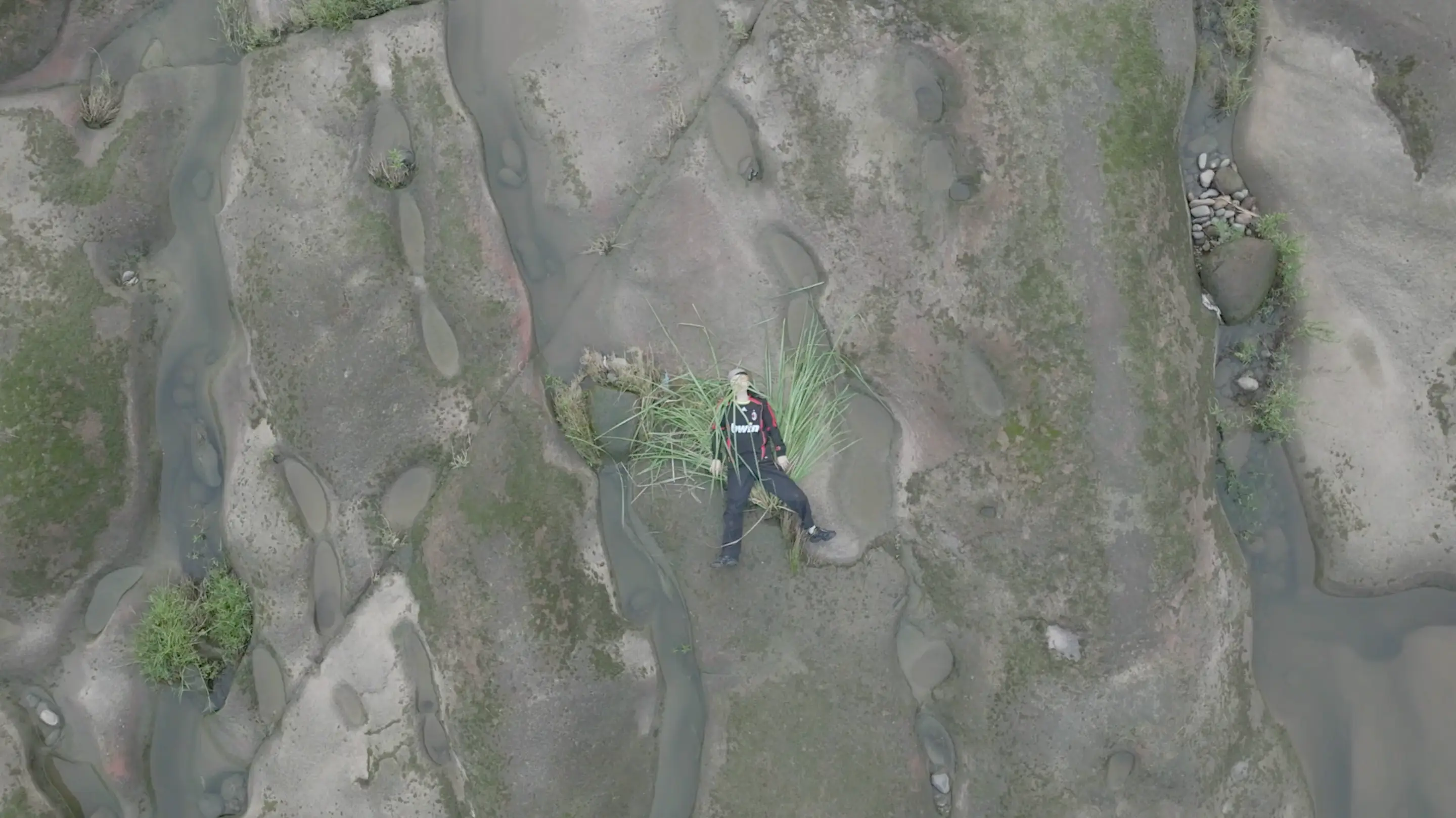
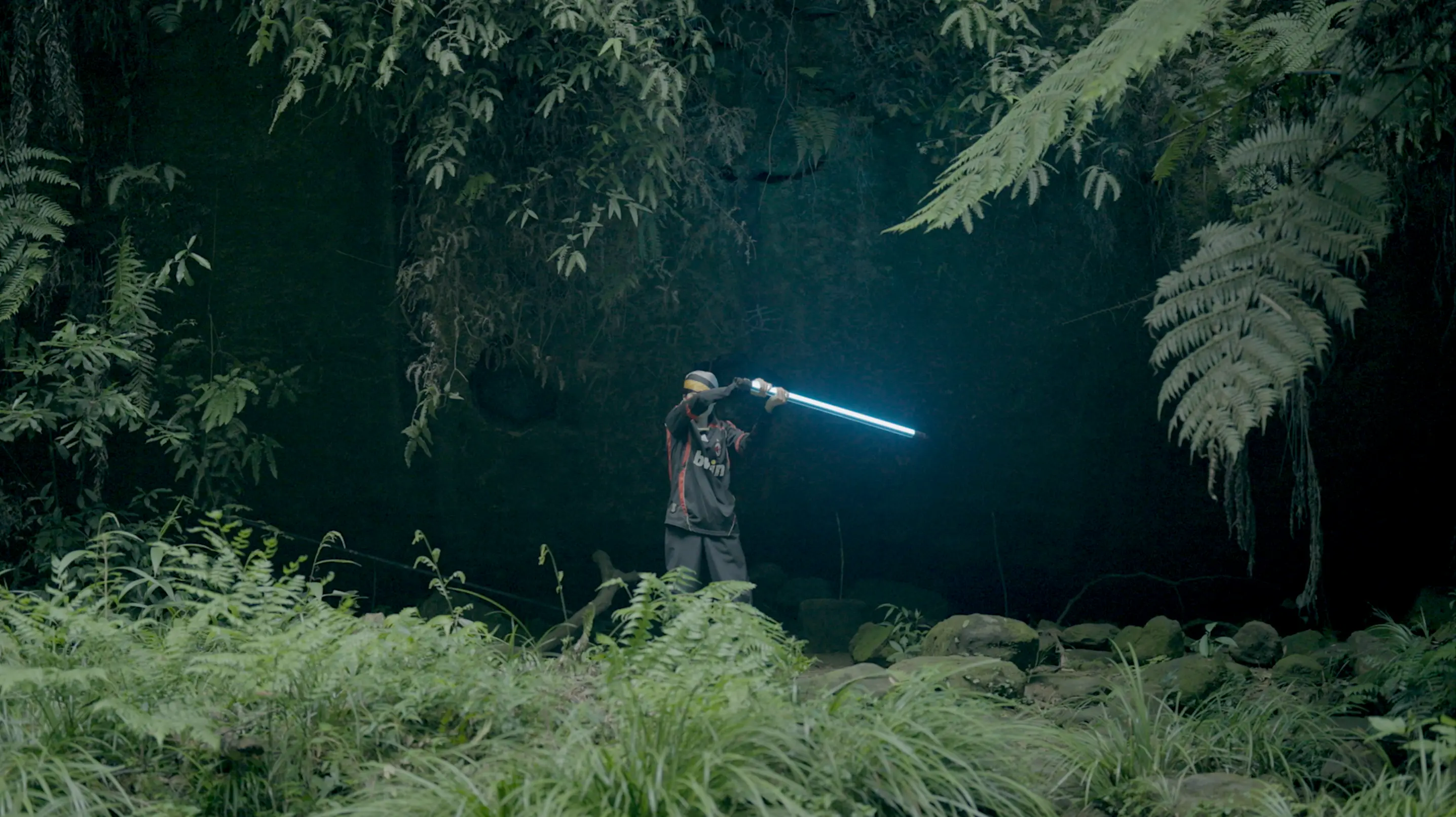
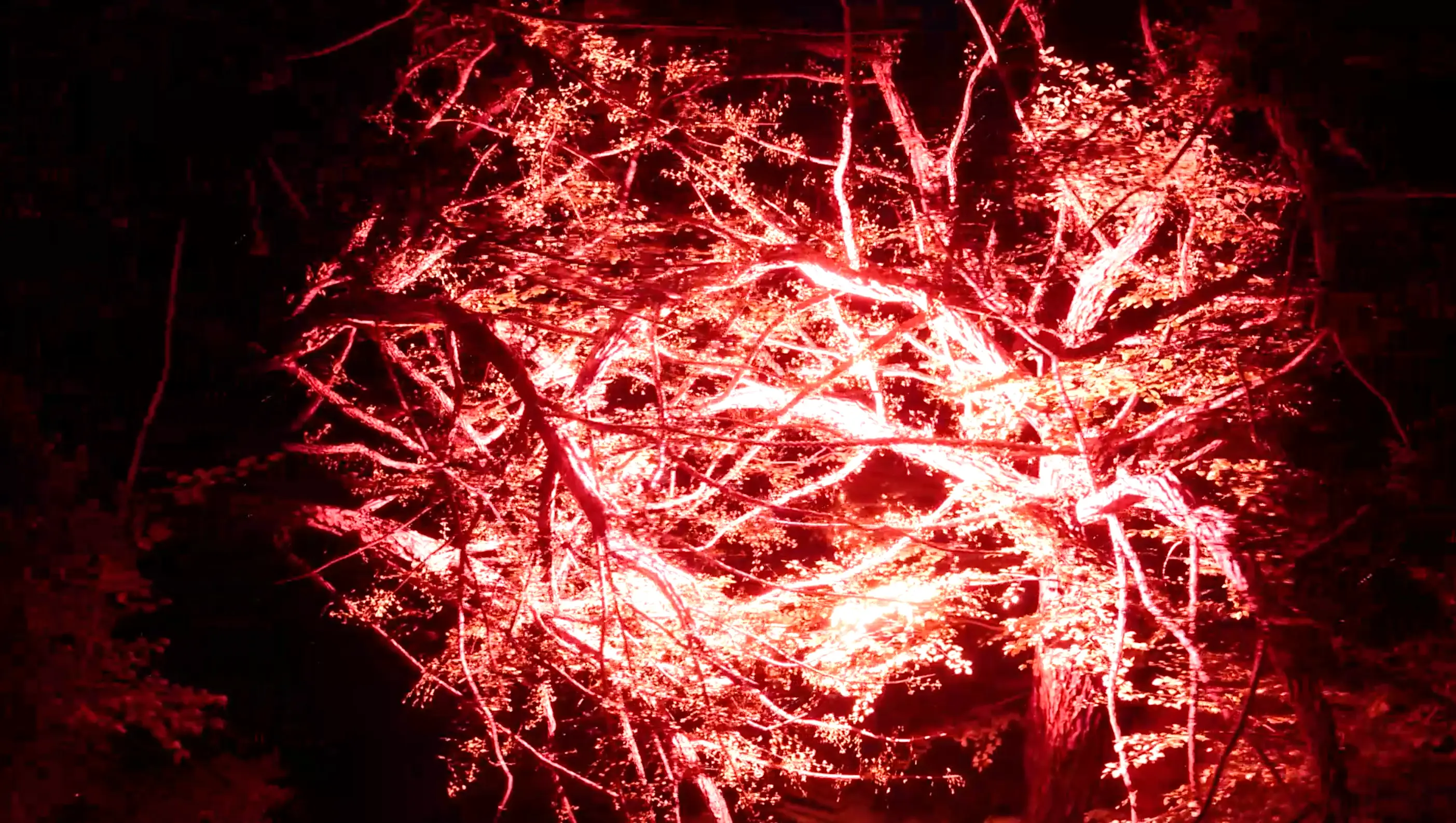

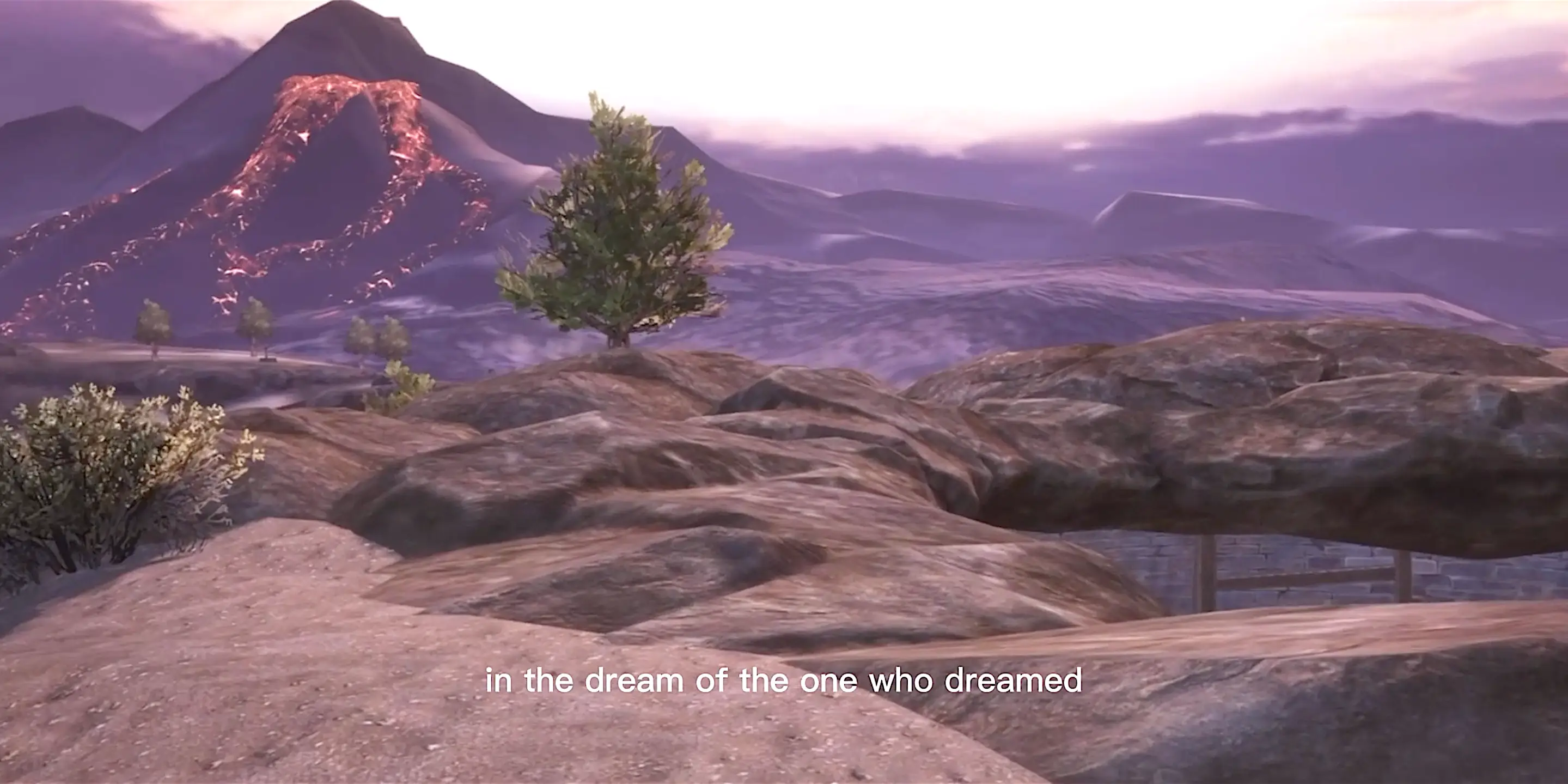
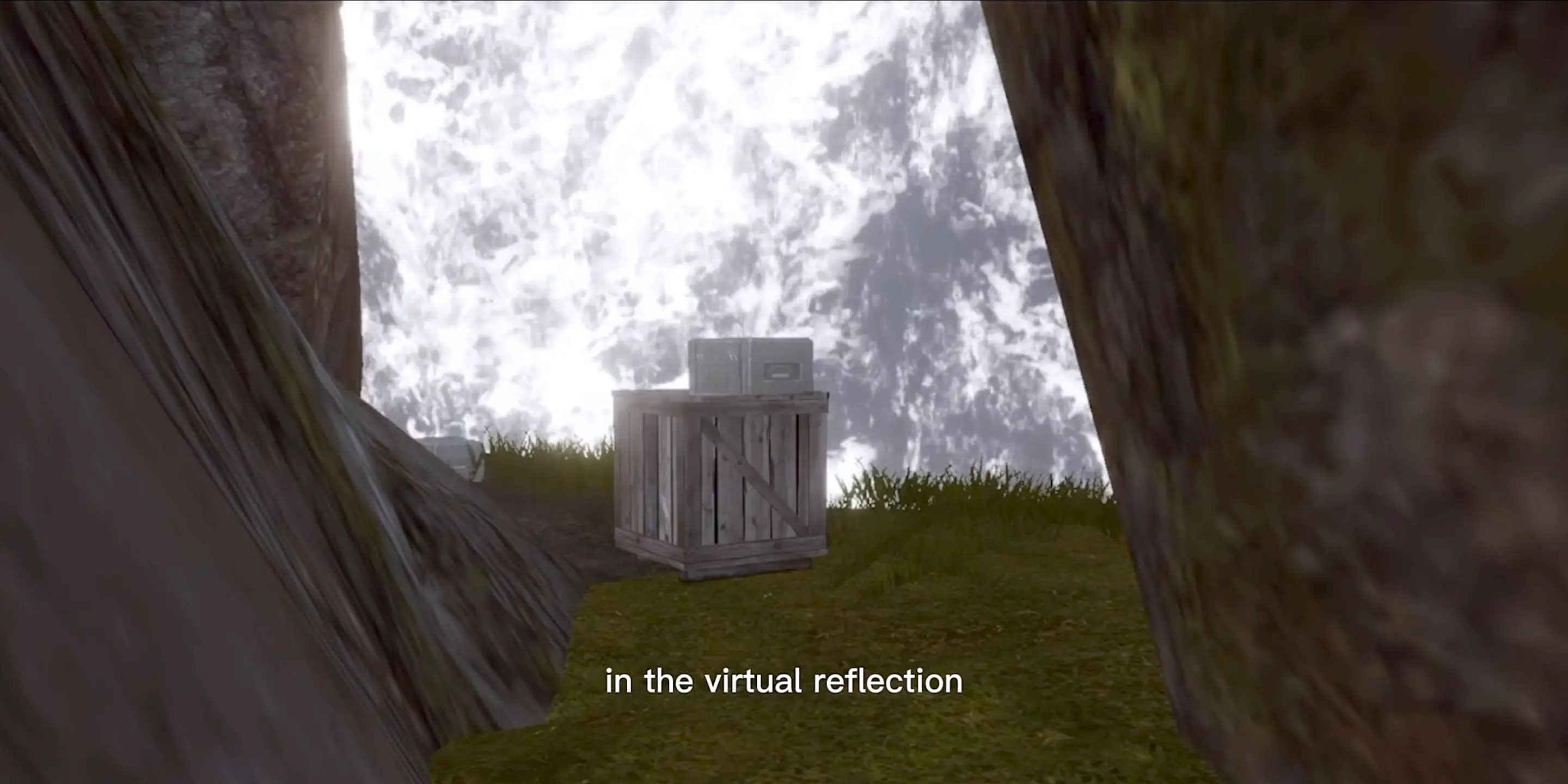

Where Ghost is lush and speculative, Phantoms (2022) is bare and brutally quiet. The work reimagines the battlefields of PlayerUnknown’s Battlegrounds (PUBG) by removing all players, leaving only the deserted landscape and the ambient sounds of conflict. Gunshots echo across empty schoolyards and ruined Soviet-era buildings on Erangel—a fictional island based on ghost cities of the post-war Eastern Bloc, including Chernobyl and Sosnovka military base. During the COVID-19 lockdown, Shi spent countless hours within these virtual ruins, which became, in a sense, their only other “home.” Initially attempting to survive without carrying a weapon—an act of non-participation within the rules of battle—they later used the game’s built-in camera to document these spaces like a filmmaker, removing their own avatar entirely. What remains is a ghost-world: still, anxious, historically charged. Here, violence is ambient, memory is architectural, and the viewer is haunted by what isn’t visible.
Inspired by Claude Lanzmann’s Shoah and Derrida’s writing on the ghost as that which disrupts linear time, Phantoms becomes a meditation on witnessing. Without protagonists or plot, the landscape itself testifies to trauma. For Shi, this “watching from the margins” mirrors their own experience as a queer player—a position marked by alienation, safety, and spectrality. In the act of withholding participation, they find a strange intimacy, a way to touch the edges of violence without reenacting it. What unites both works is a commitment to “being out of place”—not as error, but as method. Shi’s practice calls for a different kind of engagement with digital worlds: one that privileges wandering over winning. In a digital culture obsessed with presence and performance, Rui Shi proposes slowness, absence, and hauntedness as queer tactics. Their work does not offer redemption or clarity. Instead, it lingers in the unresolved, where time loops, direction fails, and bodies dissolve into landscape. To wander without a weapon, to listen to ghosts, to move without arriving—this is Rui Shi’s radical mode of play.
Rui Shi was born in 1995 in Shenyang, China, and currently resides and works in London, the United Kingdom. They hold a PhD from the University of Arts in London, the United Kingdom; an MA in Print from the Royal College of Art in London, the United Kingdom; and a BA in Theatre Design from the Communication University of China in Beijing. Notable exhibitions include the London Short Film Festival in collaboration with Zijing Zhao in London, the United Kingdom; Gravity Space in Quezon, the Philippines; Berlin Independent Film Festival in Berlin, Germany; the Liangzhu Village Cultural Center in Hangzhou, China; Tank Shanhai, China; and the National Center for Performing Arts in Beijing, China.
Last Updated on May 16, 2025


